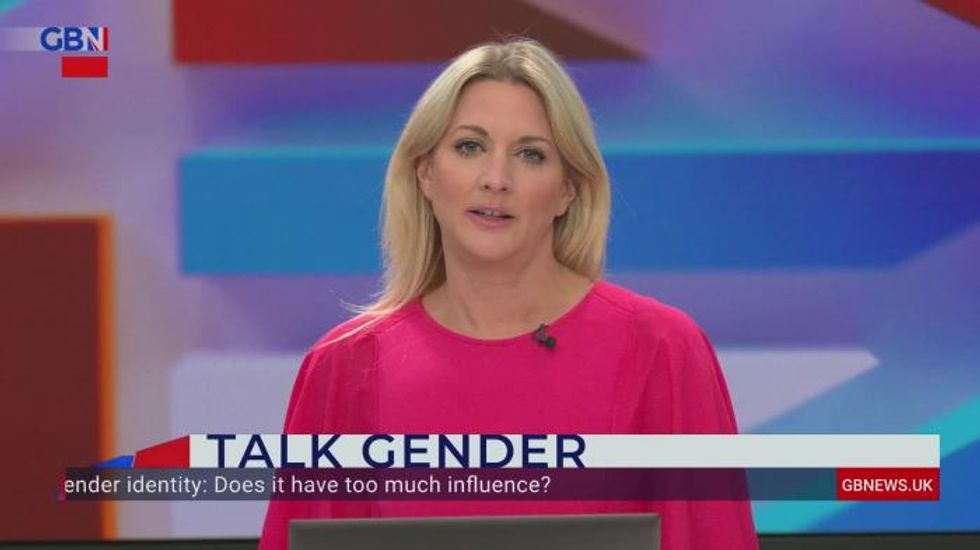Don't Miss
Most Read
Trending on GB News
Something quite remarkable has happened over the past couple of years. Something long believed immutable, a fact of life, a truism, has not only been entirely turned on its head, but to question the radical new proposition is considered outright bigotry. I’m talking about the concept of being man or woman.
The idea that you are one, or the other. Of course there have always been intersex and hermaphrodite people and those that wish to dress or live their life as the opposite sex, but the idea that gender is an elongated optional spectrum, a pick and mix where anyone can decide what they are at any given time and demand it be recognised as an objective truth, is an entirely unprecedented 21st century development that has only really taken root in extremely recent history.
Today, the Scottish Parliament is bringing forward highly controversial plans to allow trans people to self-identify their gender. At present applicants must be 18, have a medical diagnosis for gender dysphoria and swear an oath that they have been living in their new gender for two years. They now want to scrap the requirement for a medical diagnosis and cut the period to three months.
Essentially, anyone can simply just say they are the opposite sex and the rest of us have to go along with it. While this on the surface seems relatively innocuous, because frankly who really should care how an individual wishes to regard themselves, it actually ushers in a whole slate of complex, competing rights, particularly, it is argued, when it comes to women. That’s because women for a long time have relied on single sex spaces, perhaps more so than men.
Private changing rooms, toilets, counselling services - all areas where the vulnerabilities of their sex are taken into consideration. The same is true with sport. The idea, with often grossly different physicalities, that men and women could compete against each other particularly in high impact events, is frankly absurd.
Equally the idea that a male rapist could state they are a woman and demand to be sent to a female prison with inmates that have a range of mental health issues, would have been unconscionable mere years ago.
Yet today the trans lobby is one of the most powerful and vociferous in the West.Today, if anybody dares to question the new dogma, the sheer vitriol of the counter response is breathtaking. The social media pile ons against anybody who suggests that there could be dangerous ramifications to allowing anybody to just declare themselves a different gender verge on outright misogyny and hate.
It is a new battleground and social phenomenon that has shocked a lot of the Western world and borne out ugly public conflicts in areas that have been settled for centuries. Gender dysphoria is a long established medical condition, historically regarded as a psychological disorder with the latter word removed in recent years to avoid causing offence.
Rates of gender dysphoria tended to hover around a point of a per cent of the population, but have recently exploded since public campaigns around the issue have become so prominent. For the first time, the Olympics enabled a trans athlete to compete as a woman in weightlifting, some NHS trusts have stopped using the word mother in preference for birthing parent, many new developments are constructing unisex toilets and everyone who is anyone is encouraged to now sign their emails with preferred pronouns and heaven forfend if you forget what someone else that day decides are theirs. The rate of change is exponentially outstripped our ability to appraise or adapt.
What we are left with is a giant and bitter sociological mess.
Why, when incidence in society is traditionally so low, is it such a high profile topic? Why should a long standing niche issue now demand the rest of society forfeit certain rights and traditionally held beliefs?
We don’t make everyone wear blindfolds to accommodate those with partial sight, or demand all toilets are disabled, nor would it be culturally acceptable for people to be able to demand being identified as of a different ethnicity, or age, so how come when it comes to gender it is now perfectly sanctioned to create a monstrous cocktail of confusion, synthetic offence and the erosion of hard won rights? Is it necessary?
Or is it potentially catastrophically harmful as adolescents grow up more confused than ever before, as potentially damaging practices such as breast binding are being popularised by clickbait loving celebrities, as women no longer feel safe when using intimate facilities or competing in sport, where to not go along with demands of picking pronouns or remembering someone else’s will leave you exposed to criticism and retribution, where to state you are attracted to a particular biological sex could be deemed offensive and where the resultant chaos is potentially harming community relations and eroding tolerance via the sheer inflexibility of the religiously zealous credo?
Something that used to be so simple has now become a daily battlefield where the rules can change every five seconds as they are not based on anything remotely resembling objective truth, but one’s ‘lived experience’. Yet for those who are gender dysphoric, perhaps these societal changes can’t come soon enough.
Perhaps finally having a frank conversation about perceived sex is long overdue? Perhaps those of us who are heteronormative cis adults, which I think is the correct nomenclature - do really have to be made aware of the struggle others go through before we can show true compassion?
It’s become a ludicrously toxic, intolerant conversation in recent times, therefore one that we absolutely must have.
Today, we really need to talk about gender.











